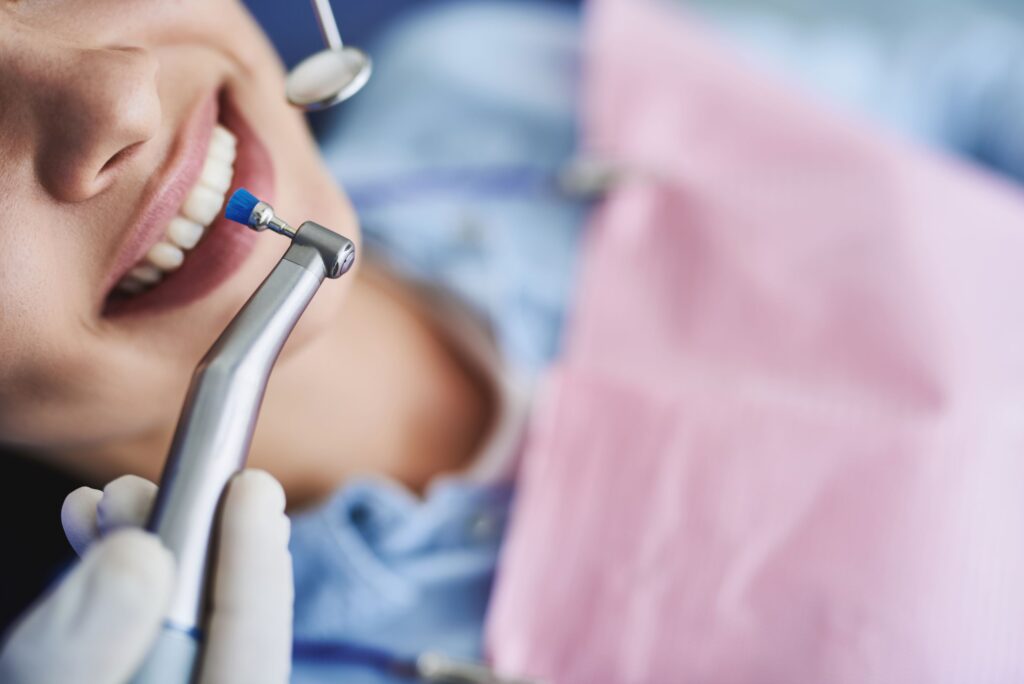
If you’ve been avoiding scheduling a dental appointment out of anxiety, you’re not alone. An estimated 36% of Americans feel apprehensive about having work done on their teeth or gums. However, if your fear is too overwhelming, you might avoid even basic procedures that help safeguard your smile, like routine checkups and cleanings.
It’s natural to avoid treatments that you’re concerned will be long or agonizing, but thankfully, that’s not usually the case with a standard visit. Continue reading to learn more about what to expect and why you can set your worries aside!
Do Dental Cleanings Hurt?
Brushing and flossing twice daily is essential for removing plaque and bacteria buildup on a daily basis, but there are areas in your mouth that you can’t see and are difficult to access. Seeing your dentist every six months allows them to monitor your condition so if there are any areas of concern, like early signs of cavities or gum disease, they can address them before they progress.
Unfortunately, many people go for long periods of time between professional cleanings, leading to additional tartar on their teeth. While your dentist can apply a local anesthetic to numb the area for your appointment, it’s normal to experience some mild to moderate sensitivity afterward as more of your enamel is exposed. Plus, your jaw might feel a little sore after holding your mouth open for longer than you’re used to.
Usually, any discomfort fades relatively quickly (within a day or two), but if your pain persists or worsens, contact your provider to let them know.
How Can I Prevent Pain from a Dental Cleaning?
Thankfully, there are steps you can take to mitigate any potential adverse effects from your dental appointment. To reduce any throbbing, you can try:
- Over-the-counter medications. It’s usually safe to take Tylenol or ibuprofen before and after your visit. That way, the meds should kick in before your dentist even starts working.
- Switch toothpastes. There are several brands of desensitizing toothpastes that can be purchased at your local store or pharmacy to avoid possible aches.
- Cleanse more thoroughly at home. If you regularly brush but don’t usually floss, you’re more likely to develop some soreness after a professional dental cleaning. Being more diligent with your at-home hygiene routine can lessen the impact at your appointment.
- Don’t skip appointments. The more regularly plaque and tartar are removed from your teeth and gums, the less likely you are to feel sensations when it happens. That means visiting your dentist more regularly can help avoid future discomfort.
Now that you know what to expect, you can fearlessly face your next visit!
About the Author
Dr. Garry C. Phillips has 40+ years of experience helping people of all ages build happy, healthy smiles. He earned his DDS degree from the University of Texas Health Science Center at San Antonio and now completes more than 12 hours of advanced continuing education every year. He’s also a valued member of the American Dental Association and other prestigious organizations, so you can trust that you’re in good hands. His comfortable office is equipped with state-of-the-art technology to enhance patient comfort while increasing the accuracy of treatment results. You can request a checkup on the website or call (972) 712-0500.
